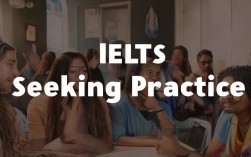在托福口语备考中,"should eating"这一话题虽不直接作为高频独立口语题目出现,但常与饮食文化、健康习惯、社会责任等细分主题结合,成为综合口语或独立口语的延伸讨论点,许多考生在面对此类话题时,容易陷入观点模糊、论证单薄的困境,究其原因,一方面是对"should"(应该)类题目的逻辑框架掌握不足,另一方面缺乏对饮食相关话题的深度素材积累,本文将从核心逻辑、论证维度、实用表达及常见误区四个维度,系统解析托福口语中"should eating"类话题的应对策略,帮助考生构建清晰、有说服力的口语表达。

构建"should eating"话题的核心逻辑框架
"should"类题目的本质是"价值判断",即论证某饮食行为或习惯的必要性、合理性或优越性,在托福口语中,此类话题需遵循"观点-理由-例证"的逻辑闭环,确保论证的严谨性与说服力。
明确立场:观点需具体且可辩论
避免使用模棱两可的表达,如"Eating habits are important"(饮食习惯很重要),而应直接给出明确立场,People should reduce daily sugar intake"(人们应减少每日糖分摄入),具体观点需结合"对象+行为+目的"三要素,teenagers"(青少年)"should prioritize balanced breakfasts"(应重视早餐均衡)"to improve academic performance"(以提升学业表现)。
递进式论证:理由需分层且互补
单一理由难以支撑观点,需从个人、社会、环境等多维度展开,例如论证"should eat local food"(应吃本地食物)时,可分层设问:对个人有何益处?对社会有何影响?对环境有何价值?每个维度下再细分具体理由,形成"个人健康支持本地经济减少碳足迹"的递进逻辑。
例证需真实且贴近生活
托福口语注重"生活化论证",避免使用过于抽象或学术化的例子,例如论证"should eat more vegetables"(应多吃蔬菜)时,可结合个人经历:"Last semester, I started adding spinach to my smoothies every morning, and I noticed I got fewer colds than before"(上学期我开始每天在冰沙中加菠菜,之后比以前更少感冒),这种具体细节能让考官产生共鸣,增强可信度。
多维度论证"should eating"的实用角度
针对"should eating"话题,可从健康、经济、文化、环保、教育五个核心维度展开,每个维度下积累具体论点和例子,以应对不同题目变体。
健康维度:生理与心理的双重效益
健康是最直观的论证角度,可细分为"疾病预防""机能提升""情绪调节"三个子方向。
- 疾病预防:should limit processed foods"(应限制加工食品),理由是"high in sodium and preservatives, increasing risks of hypertension and diabetes"(高钠高添加剂,增加高血压和糖尿病风险)。
- 机能提升:should eat breakfast before school"(上学前应吃早餐),例证"studies show students who eat breakfast have 20% better concentration in morning classes"(研究显示吃早餐的学生上午课堂专注力提升20%)。
- 情绪调节:should consume more omega-3-rich foods"(应多吃富含Omega-3的食物),理由"fatty fish like salmon help reduce anxiety and improve sleep quality"(三文鱼等深海鱼有助于缓解焦虑、改善睡眠)。
经济维度:个人与社会成本优化
从经济角度切入,可体现思维的广度,尤其适合涉及"本地饮食""减少浪费"等话题。
- 支持本地经济:"should buy from farmers' markets"(应从农贸市场购买),例证"local farmers keep profits instead of giving them to middlemen, and consumers get fresher produce at lower prices"(本地农民保留利润而非让给中间商,消费者能以更低价格买到更新鲜的农产品)。
- 减少食物浪费:"should plan meals weekly"(应计划每周饮食),理由"planning reduces impulse buying and spoilage, saving an average of $50 per month for a family of four"(计划可减少冲动消费和食物腐败,四口之家每月平均节省50美元)。
文化维度:传统饮食的传承与创新
饮食文化是托福口语的高频考点,论证时可结合"传统保护"与"现代适应"的平衡。
- 传承传统:"should learn to cook traditional dishes"(应学做传统菜肴),例证"my grandmother's dumpling recipe carries family stories, and cooking it together strengthens intergenerational bonds"(奶奶的饺子配方承载着家族故事,一起制作能增强代际联系)。
- 现代创新:"should try fusion cuisine"(应尝试融合料理),理由"it combines the best of different cultures, like kimchi tacos blending Korean and Mexican flavors, making diets more exciting"(融合不同文化精华,如韩式泡菜塔可融合韩墨风味,让饮食更丰富)。
环保维度:可持续饮食的全球责任
环保话题日益重要,可从"碳足迹""资源消耗""塑料污染"三个具体点展开。
- 减少碳足迹:"should eat less red meat"(应少吃红肉),数据"producing 1kg of beef emits 27kg of CO2, while 1kg of tofu emits only 2kg"(生产1公斤牛肉排放27公斤二氧化碳,1公斤豆腐仅排放2公斤)。
- 减少塑料污染:"should choose unpackaged produce"(应选择无包装农产品),例子"using reusable mesh bags for fruits and vegetables cuts down on 500 plastic bags per year per household"(用可重复使用的网袋装果蔬,每户每年可减少500个塑料袋)。
教育维度:饮食素养的长期价值
针对青少年或社会教育类题目,可强调饮食习惯对个人成长的影响。
- 培养健康意识:"schools should include nutrition classes"(学校应开设营养课),理由"children who understand food labels are more likely to choose snacks with less sugar and artificial additives"(理解食品标签的孩子更可能选择低糖、少人工添加剂的零食)。
- 实践技能培养:"should teach cooking in schools"(学校应教授烹饪),例证"basic cooking skills like steaming vegetables or boiling pasta help young adults live independently and avoid relying on takeout"(蒸蔬菜、煮意面等基础烹饪技能帮助年轻人独立生活,避免依赖外卖)。
高频表达与句式积累
清晰、准确的表达是托福口语高分的基石,以下针对"should eating"话题整理了实用词汇与句式,考生可灵活套用。
核心动词与短语
- 表达建议:should ought to it is advisable to it is recommended that...
- 表达必要性:it is essential to it is crucial to there is a pressing need to...
- 表达影响:contribute to lead to result in have a positive/negative impact on...
逻辑连接词
- 递进:moreover furthermore in addition what's more...
- 对比:however on the other hand conversely while...
- 举例:for instance for example take... as an example a case in point is...
数据与权威引用句式
- "According to a study published in the Journal of Nutrition..."(根据《营养学杂志》发表的一项研究...)
- "Research from the World Health Organization indicates that..."(世界卫生组织的研究表明...)
- "Statistics show that people who follow this habit are 30% less likely to..."(数据显示,遵循这一习惯的人...的可能性低30%)
常见误区与避坑指南
即使掌握了框架和素材,考生仍可能因表达细节失分,以下为三大常见误区及应对策略。
误区一:观点过于绝对
问题表现:使用"must always never"等绝对化词汇,People must never eat fast food"(人们绝对不能吃快餐)。
应对策略:改为温和建议,People should limit fast food consumption to once a week"(人们应将快餐消费限制为每周一次),体现思维的辩证性。
误区二:例证缺乏细节
问题表现:例子笼统,Eating vegetables is good for you"(吃蔬菜对你好)。
应对策略:增加具体细节,Last week, I replaced my afternoon potato chips with a carrot and apple salad, and by Friday, I felt more energetic during my evening study sessions"(上周我用胡萝卜苹果沙拉替代了下午的薯片,到周五时,我晚自习时感觉精力更充沛了)。
误区三:忽略听众背景
问题表现:使用过于专业或小众的例子,quinoa is a good gluten-free option"(藜麦是不错的无麸质选择),但考官可能不熟悉藜麦。
应对策略:选择普适性例子,brown rice is a healthier alternative to white rice because it retains more fiber and vitamins"(糙米是白米的健康替代品,因为它保留了更多纤维和维生素)。
话题实战演练:题目与示范回答Do you think people should reduce their consumption of sugary drinks? Why or why not?
示范回答(参考时间:45秒)
I strongly believe people should reduce sugary drink consumption for three key reasons.
First, from a health perspective, sugary drinks are major contributors to obesity and diabetes. A single can of cola contains about 35 grams of sugar, which exceeds the World Health Organization's recommended daily intake by 40%. Regularly drinking these beverages increases the risk of developing type 2 diabetes by 26%, according to a 2025 study.
Second, economically, cutting back on sugary drinks saves money. A family spending $5 daily on sodas could save over $1,800 annually by switching to water or tea—funds that could be used for healthier food or other necessities.
Finally, environmentally, producing sugary drinks wastes water and plastic. It takes 2 liters of water to produce 1 liter of soda, and plastic bottles from these drinks often end up in oceans, harming marine life. Reducing consumption thus benefits both personal health and the planet.
相关问答FAQs
Q1:托福口语中提到"should eating"时,如何平衡个人观点和普遍观点?
A1:托福口语鼓励个性化表达,但需确保观点具有普遍合理性,可先提出个人经历(如"I used to drink soda daily until I realized...),再过渡到普遍数据或研究("and research shows this habit affects many people"),最后回归个人建议("so I think we should all...),这样既体现真实性,又增强说服力。
Q2:当遇到不熟悉的"should eating"题目(如"should eat insects")时,如何快速构建论点?
A2:可采用"拆解关键词+联想已知维度"法,首先明确核心对象(insects)和行为(eat),然后从健康(高蛋白、低脂肪)、环保(饲养碳排放低)、经济(成本低廉)三个万能维度切入,即使不熟悉具体数据,也可用逻辑推理,Insects require less land and water than traditional livestock, making them a sustainable food source"(昆虫比传统牲畜需要更少的土地和水,是可持续的食物来源),即使例子不完美,清晰的逻辑框架也能确保基础分。











